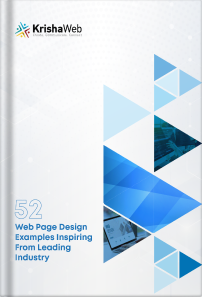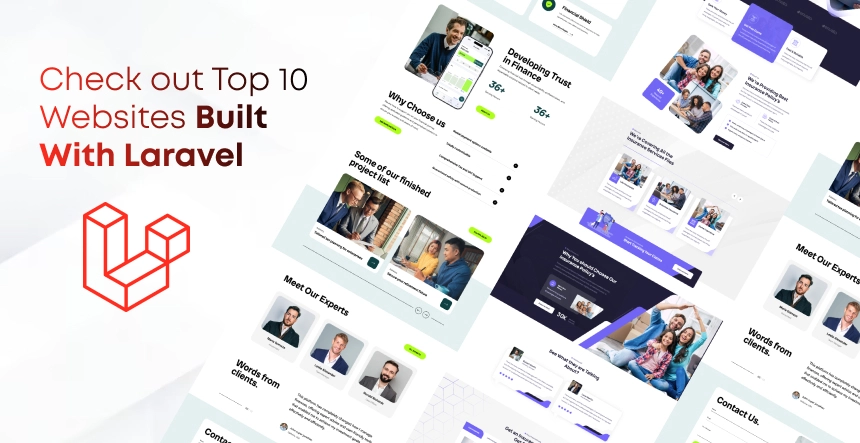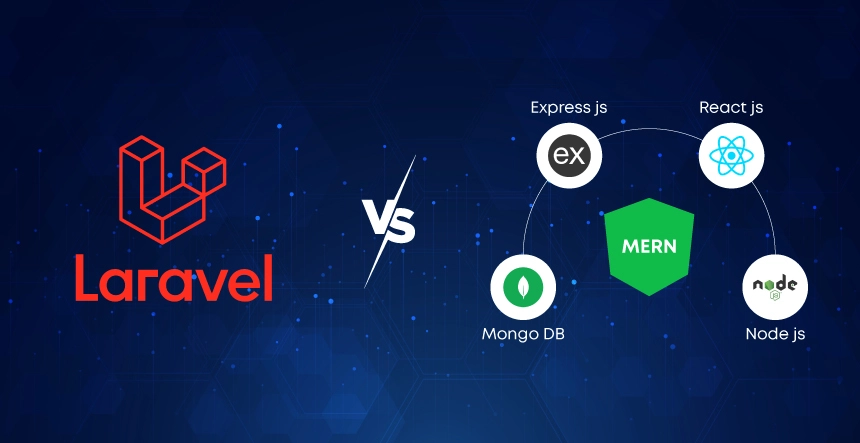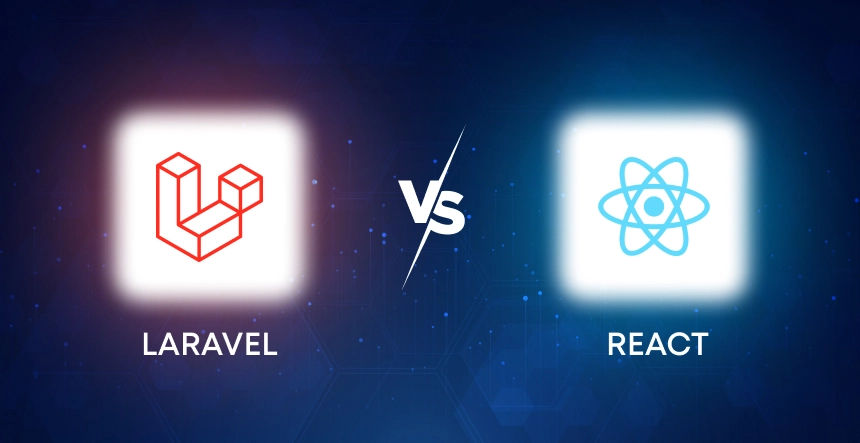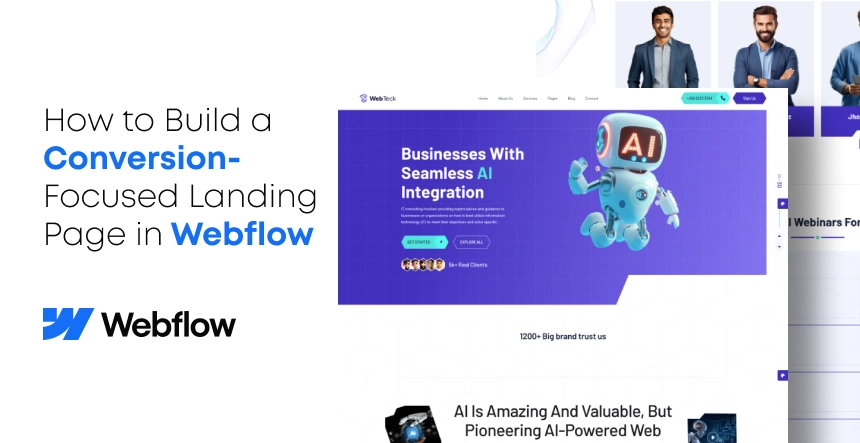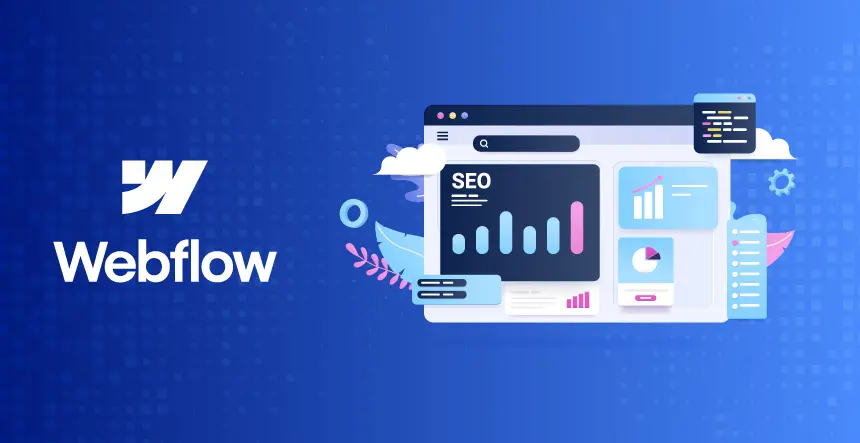
In this article, web development experts for more than a decade at KrishaWeb drill down and explain the top 10 most crucial factors affecting the Cost of Developing a Website.
A website in the simplest of terms is nothing but an online storefront of your business. In fact, a website is just like a software application which has a robust front-end the visitors see. In addition, it has a complex backend that developers and website administrators interact with to give the website the desired functionality.
Once you have decided to build a website, the next big question you are confronted with is planning the budget – determining “how capital intensive will this project be for my business?”
Solopreneurs and small businesses usually do well with template websites which offer optimal customization, maintenance and optimal room to play with front-end design and functionality through coding at the backend.
On the other hand, enterprises usually need to consider opting for a more sophisticated website – a template based website where they have the power to control and communicate their brand or go all in with a custom website.
We all know that ultimately the biggest factor influencing your decision to select one from the custom vs template website dilemma depends on the return on investment or perhaps the cost of the website.
10 Factors Affecting the Cost of Developing Website
1. Website Type
To be or not to be – that’s no longer the question. You have decided to go for a website but the question begs Custom vs Template? If you’re looking for greater control, ease of use and curated copywriting and design, a custom website sounds like a good idea.
However, having said that, it also means the wait times are much longer and the cost is higher.
On the other hand, if you want an optimal output and are willing to compromise on the long term scalability and flexibility of your website – you can save quite a few big bucks by going with the “Template Website”. Template websites can look as good as a custom website in the hands of the right kinds of experts.
2. Platform and Technology
It is important to select a platform and technology that your development team is well-versed with. Using a new programming language which sounds “fancy” and “latest” but which your developers find difficult to crack may lead to bug-laden output that takes longer to resolve – bringing down your ROI in the short run itself.
Tried and tested is the way to go.
In addition, it is vital that you fix your KPIs such as the compatibility of browsers and devices you would like your website to work on efficiently. All these factors influence how the website is coded, the time it takes and the effort the developer team needs to put in – directly affecting the cost of the project.
3. Website Design
The overall design on the website is a major factor that affects the cost of the website.
For instance, a website with static functionality, no animation or little to no hover effects on your “CTA” buttons is bound to be cheaper than another website with dynamic functionality on animated image that has hyperlinked hover effects. Sounds complex, doesn’t it?
That’s what the big bucks are for!
In addition, custom website design offers you greater brand control; however, since it is something that needs to be done from scratch the costing of the same is influenced accordingly.
On the other hand, a website with CTA buttons that have a simple functionality in design could turn out to be a major headache when it comes to development.
No wonder design is crucial when it comes to determining the cost of website development.
4. Components and Complexity
What about the images, logo designs and other infographics? Who will be managing the project? What about the design handover? Who will bear the cost of plugins, API keys and other integrations?
When it comes to web development, information that cannot be known right away determines the complexity of the project. Often it happens that the project needs the development team to learn a new programming language – quickly!
Sometimes the team is well-versed with the programming language and the underlying technology, but the use cases they come across are all unfamiliar.
On the other hand, different developers in the team may be working in different environments. For instance, one developer is working on testing the mobile friendliness of the website while another is checking tablet friendliness – each device reads the HTML mark-up in a different manner – adding additional layers of complexity.
5. Content Generation
How far do you want to go tailoring the micro-copy? Do you want titles, banners and inner text intriguing? Do you want to push the visitor to action?
There is a difference between stating informational content that creates awareness, writing engaging content that delights and crafting micro-copies that convert.
The proposition you aim for ultimately determines the cost that is likely to incur for the development of the website.
6. Hosting and Domain
Do you already have a domain purchased or are you willing to purchase another domain? Certain domain names are more expensive than others simply because they are more in demand. And, how long is it when your subscription for the domain expires?
Will the agency manage the hosting of your website? Are you going to manage hosting in house? Several such factors related to Hosting, Hosting Service Provider Packages and Domain Registrations affect the cost of the website.
7. Security and Safety
Will best practices and latest security protocols be followed when it comes to the development and hosting of your website? How hacker-proof is your website?
Do you have paid plugins in place or are you entirely reliant on older free plugins?
In addition, it is important to test prior to going “Live” whether there are any major loopholes in your website that could be a bait to a hacker. Such types of testing may usually incur additional fee depending on the agency you select.
8. Business System Integration
Often your website could easily become your storefront online. Once visitors start interacting and engaging with the storefront, it is only a matter of time when visitors become customers.
For such scenarios, it is important to keep track of transactions and data that directly connects to your business systems. If you have a restaurant that offers a web ordering facility, the transactions from the payment gateway need to be integrated with your Sales and Accounting systems.
On the other hand, if your website is an ecommerce store, you will need to integrate the logistics data and offer it to your customers as a value addition after they place the order.
It takes a skilled team to implement business system integration with your website. In addition, it takes skilled developers to create a robust backend that is integration-friendly. Such integrations are charged separately, spiking the cost of website development.
9. Advanced Reporting
Advanced Reporting as the name suggests is an advanced capability that lets you pull data of your website performance and visits in real time. In addition, this data automatically gets structured into pre-defined KPIs and formats you need – spreadsheets, csv – you name it!
Such advanced reports save your marketing team ample time and give clear strategic insights as to what’s working and what’s not.
Moreover, your marketing team does not need to rely on multiple tools to get there since this capability can be automated.
However, this feature comes with its own additional costs to the website development scope.
10. Search Engine Optimisation
SEO or Search Engine Optimisation mainly serves two purposes. The first is to increase organic ranking of your website in the Search Engine and second increase the number of visits on the website through such ranking which further translates into leads and leads to sales.
However, SEO as a discipline goes beyond link building and keyword targeting. It manifests and validates itself in the way a user scans each page and the choice he makes in seconds to stay.
It is all about engaging the user to be on your website for the longest time. In addition, other best SEO practices such as including keywords at the time of developing your website in terms of Alt text, H1s, H2s and H3s coupled with the right choice of CTA buttons – SEO takes your web performance on the search engine to the next level.
The entire sub-specialty of marketing, search engine optimization governs how your website performs and is primarily responsible to track these KPIs.
Website Development with High ROI
There is much that goes into conceptualising, designing, developing and making a website Live. It needs careful consulting, requirements gathering and translating the vision of your business into the larger “Metaversal” reality.
In addition, this development needs to be scalable, resilient and flexible to serve optimal return on your investment. Only a skilled team can deliver your vision better than your expectations.
Considering website development that helps you build a lucrative sales pipeline through digital marketing – look no further. Get in touch with the expert team at KrishaWeb today.
Nisarg Pandya
Project ManagerExperienced Project Manager and Scrum Master at KrishaWeb, delivers expertise in Scrum methodologies, Laravel, React.js, UX design, and project management, ensuring efficient project delivery and agile implementation.




